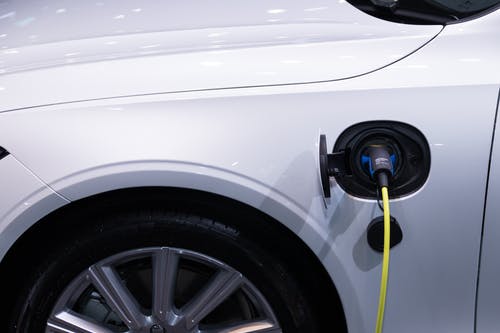
New Delhi: Society of Indian Automobile Manufacturers (SIAM), organized 13th Lecture on the theme of Electric Vehicles in India: On-Road Safety, Operations & Maintenance, on a virtual platform yesterday.
The lecture witnessed insightful presentations by prominent industry experts who deliberated upon various aspects of development of EV aftermarket ecosystem.
Mr Prashant K Banerjee, Executive Director, SIAM, in his opening remarks said, “With this decade being considered as the decade of electrification, we have embarked on a campaign of ‘walk the talk’ to delve deeper into the electrification of auto mobility. Today’s lecture is the 2nd lecture designed to offer an opportunity to learn the nuances of electric vehicle on road safety, operations, and maintenance. The first one was on developing EV for the Indian market. We are very pleased to see an overwhelming response from delegates for this lecture.”
Setting the context of the discussion, Mr Sushant Naik, Co-Chairman, SIAM Electric Mobility Group & Global Head, Government Affairs, TATA Motors had mentioned that “EVs are witnessing a growing market in India, which is a positive sign towards electrification. EV development and testing, EV safety, consumer experience of EVs, all these things are therefore important to delve deeper into.”
Speaking on EV aftermarket services, Mr Pradeep Kumar, Head (Vehicle & Customer Care), Ather Energy highlighted that, in terms of aftersales, there are some inherent advantages that electric vehicles possess. This along with data and connectivity, integrated backend, and front end, takes care of most after sales service requirements.
Emphasising on Battery Safety Design Aspects and Maintenance, Mr Abhijit Mulay, General Manager, ARAI said, “In terms of regulations in the domain of battery safety, we have AIS 038, AIS 048, AIS 056 in India, which are aligned to UN R100 and further revisions are happening in India. Earlier the focus was on lithium-ion cells, now it’s on system level approaches like Battery Management Systems, functional safety, thermal safety, closed loop safety etc. Logistics and transportation of EV batteries are also an important aspect. We also have a regulatory standard for this, which is UN38.3.”
Mr Awadhesh Jha, Vice President, Fortum India said, “Battery management systems plays a crucial role in the safety of EVs. Charging an EV is very safe and easy if you are using certified chargers. There are risks involved, however, the scale is miniscule.
Speaking on the significance of skilling in EV maintenance, Mr Arindam Lahiri, CEO, ASDC said, “In EV, the two most impacted areas are the manufacturing domain and the dealership service domain, so we are bringing awareness program in sales and providing training to drivers. We have standardized 193 job roles based on industry requirements in 5 domains, similarly, for EVs, we have a different expert group. We have also launched the Electric mobility “Nanodegree Program” in association with DIY guru, an online learning platform for engineers across, Pmanifold, an online training program with in depth knowledge on the planning of EV Fleet for specific objectives to develop a holistic understanding of EV. We have partnered with MG Motor and Autobot India to launch Dakshta, a training program specializing in artificial intelligence and EV’s aimed at creating skilled manpower for the automobile industry.
Mr Karthick Athmanathan, Professor, IIT Madras spoke about the ecosystem of Ebus fleet over the years. He talked about cradle to grave full cycle of EV Buses and the stakeholders which would be involved at different stages. Drivers, public safety first responders like police, fire men etc, the Government and transport authorities, regulators, maintenance service providers, EaaS providers, depot management team, data and analytics experts, they all have a vital role to play. Data analytics has an important role to play as they have a lot of data which they can use effectively to make future predictions to resolve issues and make functional improvements.
Concluding the discussion, Mr Vikram Gulati, Co-Chairman, SIAM Electric Mobility Group & Sr VP & National Head, Toyota Kirloskar Motor said, “We are fortunate today to have experts who presented insightful presentations on domains such as EV manufacturing, EV charging, testing agencies etc. This panel has opened new knowledge and competency pertaining to EVs, charging infrastructure, safety protocols, new regulations, skilling and so on. We are not only amidst transition of technology but amidst a shift wherein each technology is evolving rapidly in itself.”
With the theme “Electric Vehicles in India: On-Road Safety, Operations & Maintenance,” the experts at the 13th Lecture clearly spelled the sector’s initiatives towards ramping up aftermarket eco-system towards a smooth electrified transformation.
